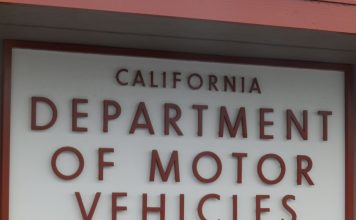Earlier this month, Judge Walker of the U.S. District Court in
San Francisco ruled that Proposition 8 was illegal. This
proposition, which banned gay marriage in California, passed by 52
percent of voters in November 2008.
Earlier this month, Judge Walker of the U.S. District Court in San Francisco ruled that Proposition 8 was illegal. This proposition, which banned gay marriage in California, passed by 52 percent of voters in November 2008.
I remember the vote. I recall driving through Gilroy and seeing one house that had a “Yes on Prop 8” sign on their front yard, and wondering who was so invested in preventing others from being happy.
A Gilroy resident told me that when she approached her polling site, people out front held “Yes on 8” signs. They looked well-dressed and friendly, hardly indicating the hateful homophobia that raged inside them. (Let alone the fact that it’s illegal in California to electioneer within 100 feet of a polling station.)
I’m thrilled about the ruling and glad that it means the U.S. Supreme Court may eventually have to visit the issue. However, Imperial County has already appealed, boggling the mind about how an entire county can be against gay marriage.
Sam Smith, who works in Gilroy and used to live here (now living in Morgan Hill), has been in a lesbian relationship for nearly four years. “Absolutely, we would like to get married someday,” she says. “It’s incredibly dehumanizing to be told you can’t. Just because you’re gay doesn’t mean you didn’t grow up wanting a fairy tale wedding.”
“There are so many connections between this and civil rights and interracial marriage. I feel we’re so close,” she says. “As a society we’re getting there.”
I agree. Our world is getting better. We are taming our brutality; no longer do we head to the town square to cackle at someone being hanged. We are evolving, leaving behind (gradually) our animal selves and becoming more humane. Authorizing gay marriage is one of the steps in our cultural development, and it will happen.
A marker of the issue’s importance is that people who aren’t directly affected by it care deeply about it. Gilroyan Lindsay Hack, a straight woman, was so happy about the ruling that she posted on Facebook about it, and then engaged in a 19-comment war with a friend who disagreed. Her diplomatic vehemence was inspiring.
To those who argue that extending marriage to gay people violates its sanctity, I ask, what’s so sacred about an institution that originally began as a way to join land and property between families, and today winds up in divorce for more than half who attempt it? What’s so sacred about a tradition you can accomplish at a drive-through window in Las Vegas in roughly the same amount of time you could get a burger and fries? Were Elvis impersonators pressed into service by God to perform this hallowed duty?
For this column, other than the wonderful people quoted here, I had a hard time finding people willing to speak on the record. Online, I found a photograph of a Gilroy resident’s lesbian wedding, performed during the legal period in Summer 2008, replete with a caption identifying both spouses by name … but attempts to reach her via emails, a phone call and a facebook friending yielded no results.
I connected with several people who either didn’t respond or told me outright that they didn’t want to go on record. Online I located realtors and therapists who identify as gay and seek gay clientele, yet was unable to get a response. Finally, a website that finds gay clubs throughout the U.S. gave me a screen that said, “Nothing gay found in this area sorry honey,” with a breathless failure to punctuate that made me laugh aloud.
I began to worry that people were reluctant to talk for fear of reprisal. Is Gilroy safe for gay people, I asked my contacts? “Even more than Morgan Hill!” says Smith. “There’s more community. I’ve seen and encountered more ‘family’ in Gilroy than Morgan Hill. It’s less of a conservative community in general.”
Gilroy resident Amanda Marshall-Kapp, who identifies as straight but says she resists labels, agrees. “So many of my gay friends seem comfortable, totally happy in Gilroy. I’ve never seen any sort of hate crime. There’s not much racism either; Gilroy’s not so bad!” She did add that she was speaking from an adult’s standpoint, and that it might feel very different for a junior high student.
In the meantime, gay marriage is still not legal. There will be a push for the November 2012 ballot to introduce a repeal of Prop. 8, which would reinstate legality instantaneously.












